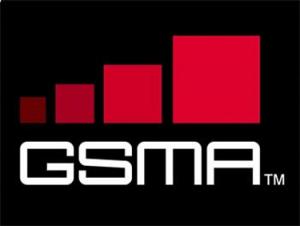Mobile Trade Group Calls for More NFC Standards

Mobile trade group the GSMA today announced that major mobile operators "have voiced their commitment" to launch NFC and called for more standards to ensure interoperability of NFC services.
The announcement comes after last week’s Mobile World Congress in Barcelona, which was organized by the GSMA, or GSM Association. At the large trade fair, handset makers said they were gearing up to introduce NFC phones this year and a couple of telcos made announcements of rollout plans.
The trade group, the largest worldwide representing mobile operators, said in its release today that it would also develop its own "certification and testing standards" to promote interoperability. The association is promoting the SIM, which its member mobile operators issue, as the premier secure element in NFC phones to store payment, ticketing and other secure applications.
"This interoperability is critical to the widespread adoption of NFC, enabling users to benefit from NFC services around the world, regardless of operator network or device type," said the trade group in a statement today.
It’s not clear, however, whether the association is considering launching its own certification scheme to approve SIM cards and NFC phones for use by member operators. A GSMA source told NFC Times that the group was exploring options, but that the association wanted standards to apply to both NFC phones and SIM cards. A certification or standards regime could start on a country-by-country basis, said the source.
But any new standards from the GSMA could conflict with a certification program launched by the NFC Forum late last year for NFC phones and other products. In addition, the European Telecommunications Standards Institute sets standards for SIM cards, including NFC-enabled SIMs, while GlobalPlatform has been writing specifications for how applications will be stored and downloaded on the secure element on SIM cards and other secure chips in phones.
Many of the NFC-enabled smartphones that will be introduced by handset makers starting this year will carry embedded secure chips that could host applications not in the control of operators. That could create tension between telcos and handset and mobile platform suppliers since many of the GSMA mobile operators are pinning their business cases for NFC on controlling the secure elements in NFC phones. That is why they want the SIM to be the de facto secure element.
Most of the NFC phones carrying embedded chips are also expected to support NFC applications on SIM cards, but this creates other potential problems, say telcos.
For example, Anne Bouverot, executive vice president for mobile services for France Telecom-Orange, warned last week at an NFC session at the Mobile World Congress that applications stored both on SIM cards and embedded chips in NFC phones could cause fragmentation, so that customers wouldn’t know whom to call in case of a problem with their services.
But the GSMA sees other looming interoperability problems for SIM-based NFC services.
For example, an M-Ticketing white paper the association released this month identified several challenges for ticketing on NFC phones using SIM cards. They include lack of standards regulating the strength of contactless transit readers to enable NFC phones to work in battery-off mode.
There are also no standards for provisioning ticketing applications on SIMs or for the over-the-air downloads of tickets. And licensing of transit technology, such as Mifare, is in the hands of private companies, such as Mifare owner NXP Semiconductors, with no standards governing the availability of the technology, said the report. This could increase costs for operators that order NFC-enabled SIMs, said a GSMA source.
The potential for mobile commerce is huge, noted the GSMA in its press release today, citing an analyst report forecasting tens of billions of euros worth of payment transactions alone on NFC phones by 2015. The association said that many of the world's leading operators were behind NFC and would launch services by 2012, at least in selected markets.
They include such telcos as Orange, Spain-based Telefónica, Germany’s Deutsche Telekom and South Korean telcos SK Telecom and KT Corp., all of which have already have made their intentions to launch NFC clear.
But the GSMA list also includes mobile operators or groups in developing countries or regions, such as China Unicom, América Móvil of Latin America, MTS of Russia and India’s Bharti Airtel.
The other mobile operators on the association’s list are UK-based Vodafone, Norway-based Telenor, Telecom Italia of Italy, Softbank Mobile of Japan, Telekom Austria Group and Qatar's Qtel Group.












